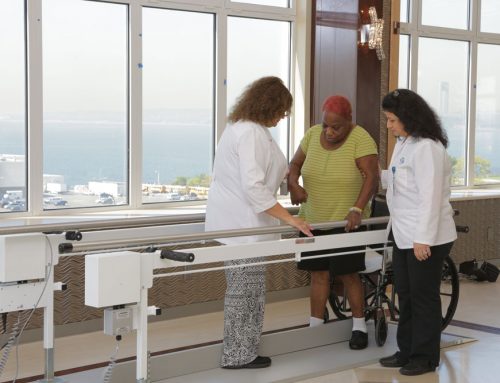Although irregular heartbeats amongst the elderly is quite common, it is still unnerving. In some instances a racing or fluttering heart do not pose any risk. Though, in some instances it can be life-threatening and so it is always best to speak to an experienced medical professional.
Different types of irregular heartbeats
In short, irregular heartbeats, also known as arrhythmias, happen when the electrical impulses responsible for coordinating your heartbeats do not function as they should. There are several different types of irregular heartbeats. Your heartbeat can either be too slow or too fast. Whether the irregular heartbeat comes from the lower heart chambers or the upper heart chambers also plays a role.

Common symptoms of irregular heartbeats
Sometimes there are no indications or symptoms that a person is suffering from arrhythmias. The following are a couple of the common symptoms: a fluttering sensation in the chest, dizziness, shortness of breath and chest discomfort or pain. It is always best to obtain medical attention when you have problems with any of these symptoms.
What can cause this condition?
There are a couple of things that could possibly give rise to irregular heartbeats such as lifestyle choices, other medical conditions and certain medication. Smoking, drug abuse, stress and a high caffeine or alcohol intake can be some of the contributing factors. Some of the medical conditions that could play a role are thyroid issues, diabetes, high blood pressure and coronary artery disease.
What are the possible complications?
There are certain types of irregular heartbeats that can put you more at risk of suffering a stroke or experiencing heart failure. When your heart cannot pump as it should, it could lead to blood clots. These blood clots can impede the flow of blood, resulting in a stroke. If arrythmia has prevented your heart from beating effectively for a lengthy period of time, it can lead to heart failure.
Care and treatment
If there is another condition, like issues relating to blood pressure or the thyroid gland, that has caused irregular heartbeats the first step will be to identify this condition so that this medical condition can also receive the right treatment.
In some cases you will need to change your lifestyle to manage your heartbeats. Not only will these changes help to keep in check certain symptoms, but it can in fact prevent the condition from worsening. Losing weight, limiting your intake of alcohol and caffeine and quitting smoking and drugs are some of the lifestyle changes that might be required.
There are also certain prescription medication, supplements, herbs and other over-the-counter medication that can be the cause of irregular heartbeats. Therefore, you should also make sure that your doctor is aware of any medication that you are currently taking.
Whatever the situation might be, you can rest assured because Haym Salomon Home for Nursing and Rehabilitation’s experienced team will work with you to identify the most suitable treatment plan to treat your irregular heartbeats.
This content comprises informative and educational resources only and can not be considered as a substitute for professional health or medical guidance. Reliance on any information provided in this article is solely at your own risk. If you have any inquiries or apprehensions about your medical condition or health goals, talk with a licensed physician or healthcare provider.






Leave A Comment